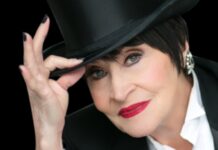Award-winning New York-based composer, librettist, and lyricist Erik Ransom (his hit GRINDR The Opera won London’s Off West End Award for Best New Musical in 2019) has joined forces once again with long-time collaborators Andy Peterson (Associate MD/Conductor of Broadway’s Tootsie) and Rachel Klein (Director of Off-Broadway’s critically acclaimed Red Roses, Green Gold, Around The World in 80 Days, and The Anthem) for their first foray into the podcast medium.
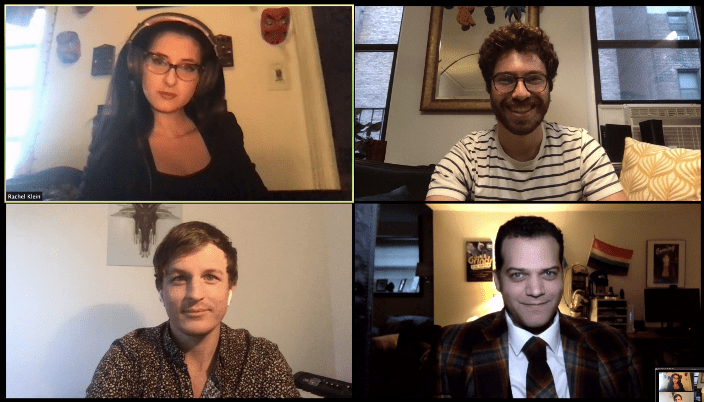
The creative trio’s all-new musical radio play, The World to Come, with book and lyrics by Ransom, original compositions and orchestrations by Peterson, and direction by Klein, is an epic serial adventure into a post-apocalyptic future. Filled with witty pop culture references to “the good old days” of our modern and post-modern times, the scripted musical tale is told in twelve narrative episodes of approximately 30-minutes each, complemented by Peterson’s expressive eclectic score. And the first two installments – voiced by a top-notch cast of 20+ actors, recording artists, and Broadway veterans (Joanna Carpenter, Tsebiyah Derry, Jamyl Dobson, Remy Germinario, Lana Gordon, PJ Griffith, Em Grosland, Brandon Haagenson, Chris Harder, Jonathan Hoover, Kate Hoover, Scott Lilly, Sandra Marante, Tara Martinez, Joseph Redman, Carson Robinette, Marissa Rosen, Justin Sargent, Grace Stockdale, Luis Villabon, and Ransom), all taping remotely from their own homes and conveying the defining voices and personalities of their distinctive characters – are now live online.
I spoke with Erik (who can currently be seen as François on the Emmy-nominated Amazon series Tainted Dreams and as Matthew in the musical mockumentary Happy Yummy Chicken, now available on PeacockTV) about the new work, its inspiration, and the challenges of creating it in these “Quarantimes.”
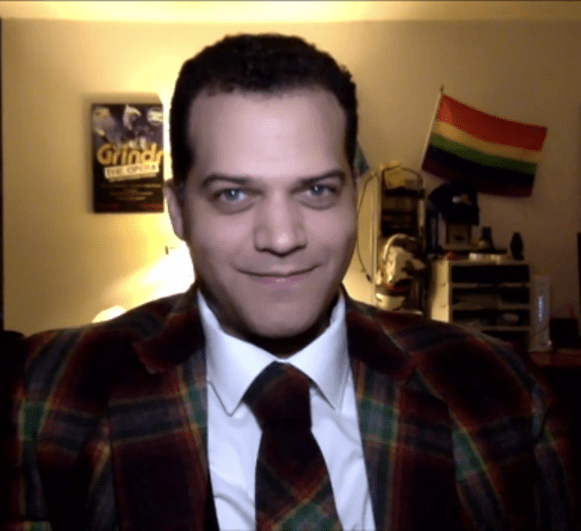
What made you decide to delve into the genre of the radio play at this particular juncture?
Erik: When the pandemic hit and Broadway shut down, Rachel, Andy, and I, like most theater artists, watched our upcoming projects and prospects go up in smoke. The three of us had a lot of soul-searching conversations about our careers and what the foreseeable future of musical theater might be. The idea that struck us like lightning was a musical audio series – something we could potentially create remotely that would be easily digestible to an audience within the New York theater community that knows our work, and far beyond.
Over our years of collaboration, we’ve amassed an incredible family of artists in whom we believe and we sought to create something that could highlight their sundry talents, as well. Thus the post-apocalyptic city-state of Fiveboro was born! Ironically, as our industry shut down and live theater had to be forbidden, we found the freedom to create something that would be wholly unproducible in that medium. Without the restrictions on duration, scene shifts, production budget, or cast size, our triumvirate of epicists was able to conjure our most epic saga to date, with a whopping 54 original songs including reprises!
What was the learning curve like for you, as a novice in the medium?
As Andy and I are both expeditious and prolific writers when inspiration strikes us, the first drafts of scripts and songs started pouring out within hours of conception. This was my self-care regimen at the dawn of the Quarantimes, and I spent hours a day writing, until, after a little over a month, I’d drafted a season of twelve roughly 30-minute installments with at least three original songs per episode. As for the learning curve, this medium caused all of us to think and to be creative in very different ways. Creating a world that’s meant to be heard without being seen means you have to employ a lot of tricks to distinguish characters, to establish settings, and so forth. Rachel worked closely with our brilliant sound designer/lead mixer Sean Hagerty to employ sound effects and soundscapes to aid in the storytelling, while Andy was working on an eclectic repertoire of gorgeous songs and intricate cinematic underscoring to amp up the emotion and to establish transitions.
This has been a total team effort, and we’ve all been learning a ton through trial and error as we forge a brand new path and reinvent several wheels in the process. I would be remiss if I didn’t mention our stalwart audio producer/engineer Mike Lunoe, whose truly tireless efforts have brought a level of polish to this project that is unbelievable, given that some people were recording on equipment worth thousands of dollars, and others were recording into their phones. Mike, his apprentice Cadence Hira, and the rest of the audio department have spent countless hours working to make sure all of the voices sound like they’re in the same room at the same time, even though some of them were thousands of miles apart at the time they recorded. We were also fortunate enough to have the guidance of producer David Treatman, who has worked in both of the relevant media – Broadway theater and podcasts. David’s experience and commitment to the project have been invaluable resources in helping us steer clear of many a quagmire during a concentrated process with an incredibly ambitious timeline.
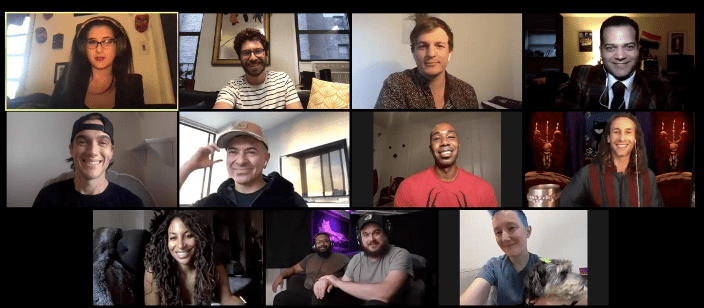
As a composer, singer, and musician, what elements do you enjoy most about the format of listening?
I think listening taps into exciting parts of the imagination. When I write a script for the stage, I tend to be rather sparing in my scenic descriptions, because I know I’ll have a visionary director like Rachel Klein to set the stage with dazzling imagery. In the audio-play medium, however, I’ve often had to think more like a novelist than a playwright, as I described the world of the series in, at times, florid detail. But no matter how descriptive I am in my narration, a big part of this story will be designed by the imagination of the listener. Everyone will see Fiveboro differently in their minds. What I had in mind when I wrote the scenes may be completely different from what some members of the audience envision and I honestly find that really exciting. I want the listeners to feel like a part of the tale, because The World to Come is largely a story about the medium of storytelling itself.
Actually, in addition to the writing I’ll be narrating this season. I was interested in doing more voice acting, and Rachel liked the idea of a radio show with a writer/narrator in the vein of Orson Welles. With my quarantine weight gain that allusion may be a tad more apt than she intended, but I’d obviously love to have a career half as eclectic, industrious, and well-regarded as that of Mr. Welles, so I’ll take it!
In your past work, you’ve done a bit of time-traveling back into different historical periods. What inspired this theme of a dystopian future?
In short, this dystopian future was inspired by the dystopian present! But to make a long story long, I was on a call with Rachel in mid-March, brainstorming ideas for our pandemic project. We knew it was going to be a musical audio series, but did we want to do a parody of a famous podcast like Serial? Did we want to adapt one of our existing projects? Rachel encouraged me to write something new that responded to the strange days of 2020 implicitly, without being too on-the-nose or preachy.
Thinking about what kind of future might develop if we stay on our present trajectory of ignoring climate change and further deepening our political divides, I started to run with the idea of a future New York City that had sundered itself from the rest of the country during an era of turmoil. Its denizens came to rely upon the oral tradition to entertain the masses, but the only stories they told were recycled from the media of the 20th and 21st centuries. Out of that arose the Five Great Factions – each worshipful of a different TV/film genre. From there we started to flesh out a world with epic stakes, a lot of heart, and a liberal dose of camp to balance it all out.
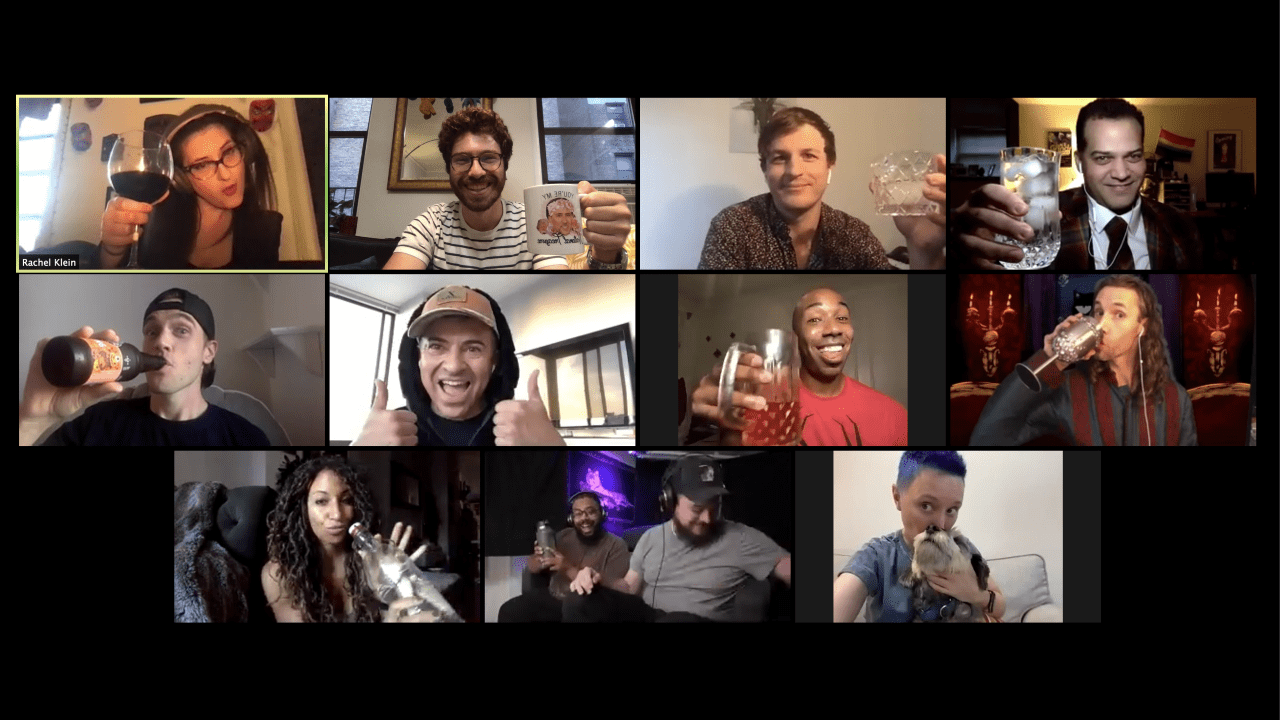
Can you give us a brief synopsis of the narrative and main characters (with no spoilers, of course!)?
Our story begins ten years after the end of The Genre Wars, which established the Five Great Factions as rulers of their respective domains. Boogietown is run by Los Escandalistas, who worship Telenovelas. Queensrealm is ruled by The Fansci Folk, who revere Fantasy/Sci-Fi. Soderburg is controlled by The Criterione Collective who praise independent art films. The Real Isle of Staten is reigned over by a Reality TV tribe called The Snookis, and the Isle of Whiteway is in the pocket of the Hepburner faction, who love their old black-and-white classic pictures. All of the tribes rely upon a mysterious figure known as The Cardinal (Luis Villabon) to provide them with relics and resources from our time, but he’s harboring a secret. One of The Cardinal’s agents, Lukas Sparrow (Justin Sargent), meets Princess Ripley (Tara Martinez), heir to the throne of The Fansci Folk. The pair assembles a fellowship of adventurers from all across Fiveboro, who unite to uncover The Cardinal’s machinations in hopes of revealing Fiveboro’s biggest secret.
This core fellowship includes Broadway favorites like Justin Sargent and Marissa Rosen, alongside other actors we’ve enjoyed working with in the past, like Tara Martinez and Em Grosland. There are a few newcomers to our company of players, as well, including Sandra Marante and Carson Robinette, who is fresh out of UCLA. There are so many more talented actors sprinkled throughout the season in supporting, recurring, and guest star roles! We even have a very special celebrity guest lined up to join our little post-apocalyptic family later in the season, but I can’t say more on that quite yet.
Are there any plans in the works for extending the series beyond this inaugural season?
Oh, are there ever! I’ve plotted out the next two seasons, as well as a few minisodes that delve into the Five Great Factions with a few flashbacks, sidebars, and origin stories. Actually, our producer David has even proposed the idea of a graphic novel set in Fiveboro. I’ve already begun to draft that up as a prequel set during The Genre Wars that preceeded the period depicted in the audio series. There’s plenty more that I’m not at liberty to share, but that’s the really exciting thing about a project like this, with so much world-building – the sky’s the limit! It’s really difficult and rarely successful to branch out this way in live musical theater, but one of the great things about this project is that there’s no reason it can’t return to the stage in some form down the line. Maybe not the same story you’ll get from the audio series, but something wholly original set in the same universe. I think I speak on behalf of our whole team when I say there’s still so much to explore in The World to Come!
Many thanks, Erik, for giving our readers a preview of your latest work and some insights into your artistic process. I look forward to listening!
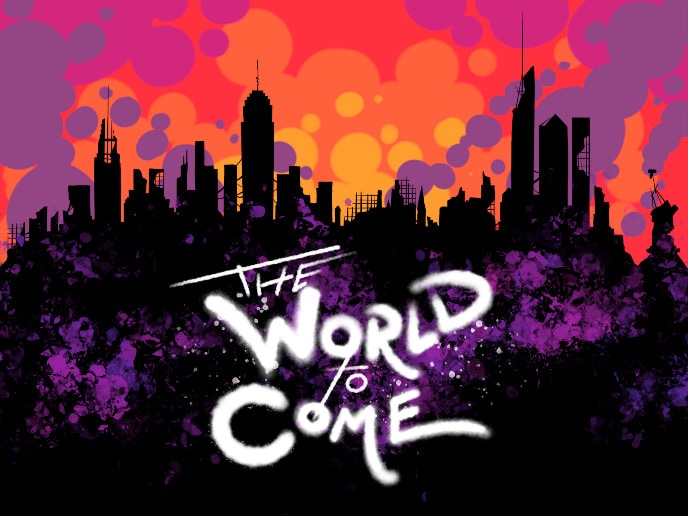
You can follow The World to Come, produced by The Iconoclast Theatre Collective and David Treatman Creative, on Facebook, Instagram, and Twitter. The inaugural season begins on Monday, October 19, 2020, with Episodes #1 and 2 (“To Boldly Go” and “Fact or Fiction”), and will continue into early 2021. To listen, go online.




